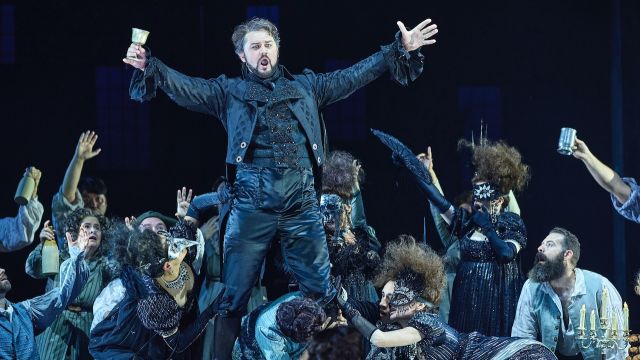Don Giovanni
As sumptuous a musical banquet this opera is – and in particular under the brilliant baton of conductor Guillaume Tourniaire – aspects of the narrative bring it to the precipice of being unperformable as originally written.
In the opening scene Don Giovanni has broken into the house of Donna Anna - a engaged woman - to ‘seduce’ her against her will, and later flings her to the ground. This incident is referred to by Don Giovanni’s servant as a rape, however she contradicts this by singing that her honour remained intact. What is not ambiguous is that in the rush to escape, Don Giovanni murders her father.

In another song a female character implies that she deserves to be beaten by her fiancé and asks that he do it gently.
With my jaw dropped to the floor at the 18th century misogyny I was wondering how this work still gets performed in exactly the way it was originally written? Could not a song be cut or have its lyrics tweaked?

The most famous song in the opera is ‘the catalogue aria’ where Don Giovanni’s servant Leperello lists all the peasant girls, baronesses, and princesses etc., that his master has seduced over the years. “A hundred in France; in Turkey ninety-one; But in Spain already one thousand and three.”
Did they all consent? Sadly this issue is not dealt with.
Next to the Opera Theatre in the Concert Hall the play Amadeus is being performed and it is easy to understand why Mozart’s delight at vulgar humour would make the legend of Spanish womanizer Don Juan an irresistible subject for him.

Opera Australia has put together a formidable cast for this production. In the role of Don Giovanni is commanding Ukrainian baritone Andrei Kymach. He gave a blast before meeting his reckoning that resembled a Tuba.
French-Israeli bass-baritone Yuri Kissin undertook the role Leperello with panache and humour.
Australian artists shone as the female principals - Sophie Salvesani as Donna Anna, and Bronwyn Douglass as Donna Elvira.

Douglass, the winner of the Joan Sutherland and Richard Bonynge Bel Canto award, was honoured with the presence of Richard Bonynge himself in the opening night audience, on a trip from his home in Switzerland.
Originally directed by David McVicar, this is a traditional looking production with a gothic feel that has an enormous set of stairs which descend impressively from the ceiling of the stage.
It is a production for purists who like seeing opera as originally written.
David Spicer
Photographer: Keith Saunders
Subscribe to our E-Newsletter, buy our latest print edition or find a Performing Arts book at Book Nook.

